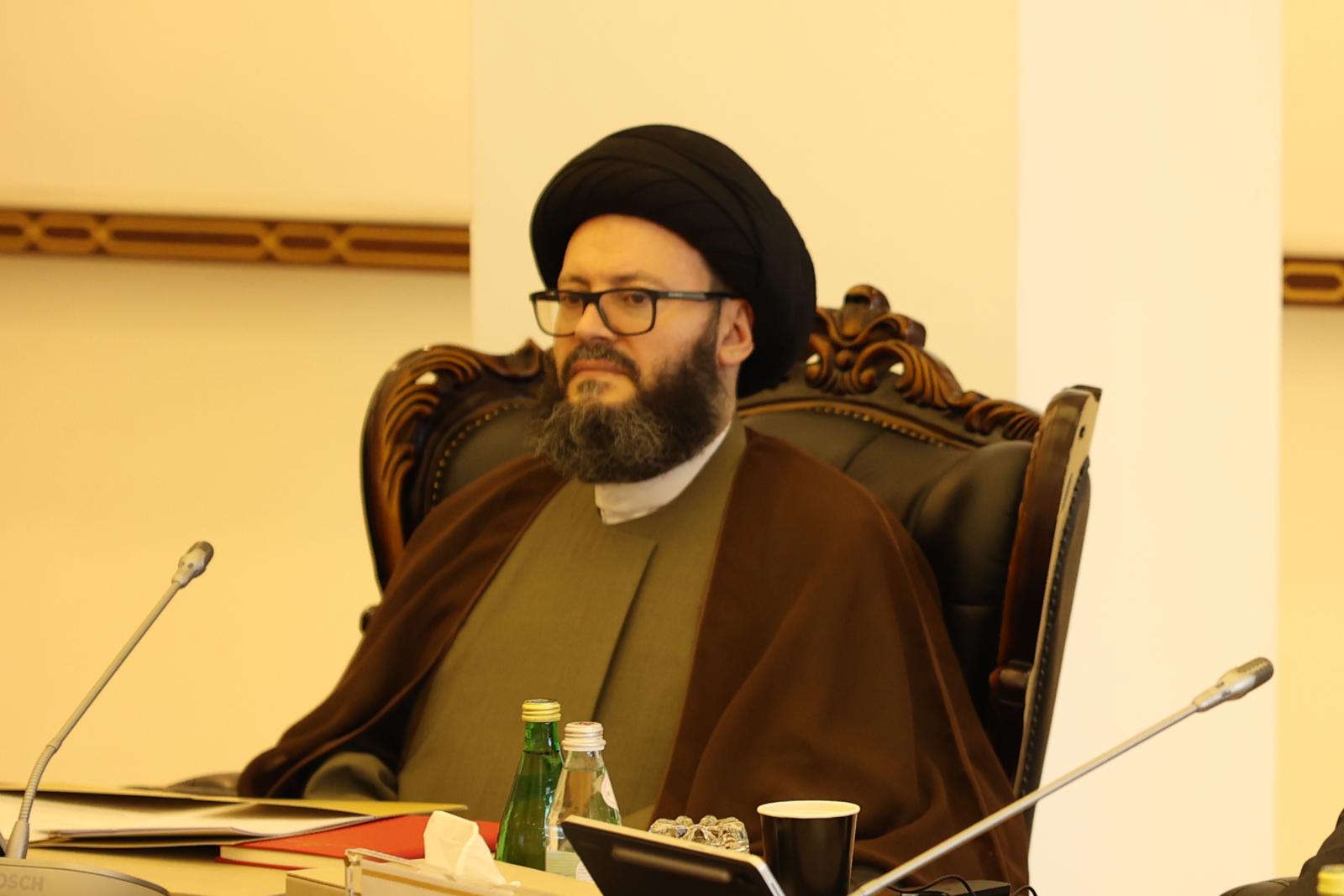By Sheikh Mohamad Ali El Husseini Jerusalem holds no sanctity for us
Jerusalem holds no sanctity for us

By Sheikh Mohamad Ali El Husseini
@sayidelhusseini
Our website has received numerous inquiries about the status and sanctity of Jerusalem (the Dome of the Rock) within the Ja'fari (Shia) school of thought. To clarify matters and spread beneficial knowledge, we present this article.
Jerusalem, this city with an ancient historical status, holds within it a long history imbued with different religions and cultures. But does the Dome of the Rock (Jerusalem) hold the same sanctity within the Ja'fari school of thought? Our response to this question and our assessment of this matter require careful consideration of concepts and religious texts, far removed from emotional and sentimental language.
Establishing Sanctity
In Islamic law, sanctity requires an establishment based on explicit religious texts that confirm it. This means there must be definitive and certain evidence from the Holy Qur'an or authentic hadiths that confirm the sanctity of a specific place. According to our research and examination of religious texts within our school of thought, it seems that Jerusalem (the Dome of the Rock) does not possess this recognized sanctity according to Sharia.
Purity and sanctity, according to Sharia, are closely linked to explicit religious texts and clear rulings conveyed by authentic narrations. Thus, any place that does not meet these criteria remains far from the concept of Sharia-sanctioned sanctity, and its original state is one of non-sanctity.
Abd al-Malik ibn Marwan and the Construction of Jerusalem (the Dome of the Rock)
The construction of Jerusalem (the Dome of the Rock) by Abd al-Malik ibn Marwan is linked to political and administrative reasons more than direct religious reasons, as indicated by Ibn Kathir and other historians. Ibn Kathir narrates from the author of "Mirror of Time" that:
"Abd al-Malik ibn Marwan began constructing the dome on the rock of the Al-Aqsa Mosque and completed the construction in the year seventy-three. The reason for this was that Abdullah ibn al-Zubayr had taken control of Mecca and was delivering sermons during the days of Mina, Arafat, and the stay of people in Mecca, criticizing Abd al-Malik and the Umayyads. He said: 'The Prophet cursed Al-Hakam and his progeny and he is an outcast of the Messenger of God.' He called people to himself and was eloquent, attracting most of the people of Sham to him. Abd al-Malik heard of this and prevented people from performing Hajj, causing a commotion. So he built the dome on the rock and the Al-Aqsa Mosque to divert them from Hajj and win their hearts. They stood by the rock, circled around it as they circled around the Kaaba, sacrificed on Eid, and shaved their heads" (The End of Ibn Kathir, Vol. 8, p. 308).
This background raises questions about the religious basis that might be attributed to this monument, and the myths surrounding the alleged rock, which are woven around it with numerous stories that have no foundation in Sharia or history. These myths add to the ambiguity of its true status and affect the correct understanding of its sanctity in light of clear religious principles.
The Religious Stance on Jerusalem
By examining the narrations and hadiths relied upon in the Ja'fari school of thought, we found no definitive evidence or authentic narration proving that Jerusalem (the Dome of the Rock) holds special sanctity in our school. The absence of such narrations confirms its lack of consideration as one of the religious sanctuaries, as it might be in other schools of thought.
Furthermore, there is no report from the Imams of Ahl al-Bayt (The House of the Prophet, peace be upon them) indicating any virtue for Jerusalem (the Dome of the Rock). The narrations filled with great virtues for Jerusalem are all through narrators other than ours.
Conclusion
From the above, it becomes clear that Jerusalem (the Dome of the Rock) does not enjoy a legitimate basis that confirms its sanctity within the Ja'fari school of thought. This does not mean that we diminish its historical and cultural status, but here we are discussing what is well-known among the Ja'fari jurists, urging Muslims to adhere to sound religious principles and not be swayed by myths or traditions that lack a clear Sharia basis.
We emphasize: there is no particular sanctity for Jerusalem (the Dome of the Rock), and it is problematic for any movement by followers of the Ja'fari school towards Jerusalem, and any slogan or action or banner raised for Jerusalem and blood shed for Jerusalem or on the way to Jerusalem is a Sharia issue and a heresy without a Sharia basis according to the prominent jurists of Ahl al-Bayt (peace be upon them). This is what was stated in the responses to the legal inquiries we sent to the authorities, and their response was: "There is no religious consideration for the Dome of the Rock, and we did not find in the narrations of Ahl al-Bayt (peace be upon them) anything indicating its importance" and another response: "The Dome of the Rock has no special sanctity according to us."
Thus, Jerusalem holds no sanctity for us, and we see that the rock of the dome has no consideration or status in Islam.

